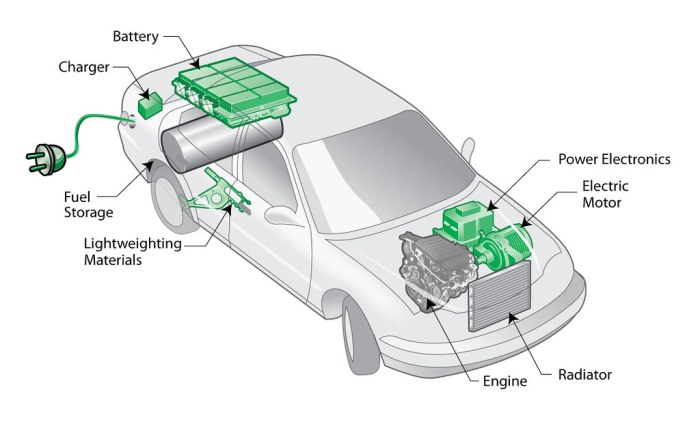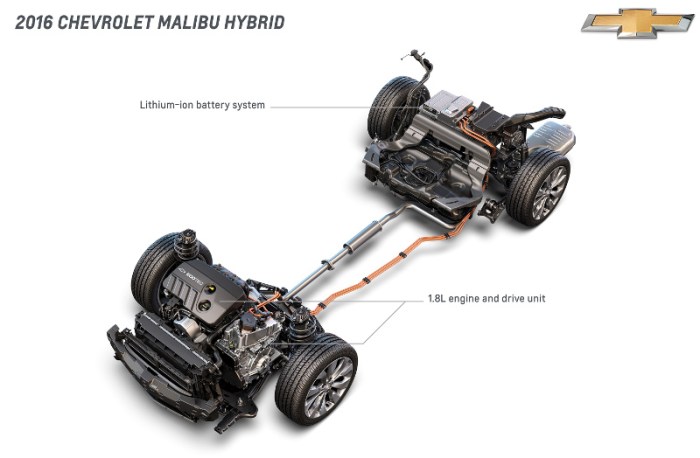Hybrid vs electric cars is a hot topic in today’s automotive world, and it’s not just about saving the planet. As technology evolves, understanding the differences between these two types of vehicles can empower consumers to make informed choices that suit their lifestyles. From their definitions to their eco-friendly benefits, there’s a lot to unpack that could make a real difference in how we think about our rides.
Over the years, hybrid and electric vehicles have come a long way, transforming from niche options to mainstream favorites. With growing concerns over fuel prices and climate change, knowing what sets these cars apart is more vital than ever for anyone looking to dive into the realm of eco-conscious driving.
Introduction to Hybrid and Electric Cars: Hybrid Vs Electric Cars
The automotive industry has seen a significant shift towards more sustainable transportation solutions, with hybrid and electric cars leading the charge. Hybrid cars combine traditional internal combustion engines with electric propulsion, while electric cars operate solely on electricity. This distinction is crucial for consumers trying to navigate the evolving landscape of automotive technology.
Over the years, hybrid and electric vehicle technology has evolved dramatically, from the early days of the Toyota Prius in the late 1990s to the sleek, high-performance Teslas of today. The advancements in battery technology, electric motors, and regenerative braking systems have made these vehicles more efficient and appealing. Understanding the differences between hybrid and electric cars is essential for consumers aiming to make informed decisions that align with their driving habits, environmental concerns, and financial considerations.
Key Differences Between Hybrid and Electric Cars
One of the most significant differences between hybrid and electric cars lies in their power sources. Hybrid cars utilize a combination of an internal combustion engine and an electric motor, switching between the two as needed. In contrast, electric cars rely solely on electric motors powered by rechargeable batteries.
Fuel efficiency and emissions are also key areas of distinction. Hybrid cars generally offer better fuel economy than traditional gasoline vehicles while producing lower emissions. Electric cars take this a step further with zero tailpipe emissions, contributing to cleaner air and reduced greenhouse gases.
When it comes to driving range, hybrid cars usually outperform electric cars due to their dual power sources. However, advancements in battery technology are steadily increasing the range of electric vehicles (EVs). Factors influencing these ranges include battery capacity, driving conditions, and the use of climate control systems.
Benefits of Hybrid Cars
Hybrid cars come with several advantages that make them an attractive option for many drivers:
- Fuel economy: Hybrids can achieve significantly better mileage than conventional cars, leading to long-term savings at the pump.
- Lower emissions: By combining electric and gasoline power, hybrids produce fewer emissions, contributing to a healthier environment.
- Convenience of refueling: Unlike electric cars, hybrid vehicles can be refueled at any gas station, making long trips easier without worrying about charging stations.
- Cost-effectiveness: Over time, the maintenance costs for hybrid vehicles can be lower than traditional cars due to fewer moving parts and less wear on the engine.
Benefits of Electric Cars, Hybrid vs electric cars

Electric cars offer unique benefits that appeal to environmentally-conscious consumers:
- Environmental benefits: Electric vehicles produce zero tailpipe emissions, which helps reduce air pollution and combat climate change.
- Fuel savings: EV owners can save substantially on fuel costs, as electricity is often cheaper than gasoline.
- Government incentives: Many states and federal programs offer rebates and tax credits for purchasing electric vehicles, lowering the overall cost for buyers.
Performance Comparison

Performance characteristics between hybrid and electric cars can vary significantly. Electric vehicles tend to have quicker acceleration due to the instantaneous torque provided by electric motors. On the other hand, hybrids may experience a slight delay as the internal combustion engine kicks in.
Weight distribution also plays a crucial role in performance. Electric cars often have a lower center of gravity due to the placement of heavy batteries, enhancing stability and handling.
Notable models, such as the Tesla Model S, show exceptional performance metrics, while hybrids like the Honda Accord Hybrid provide a balanced driving experience with respectable acceleration and comfort. Performance statistics reveal that while hybrids excel in fuel efficiency, electric cars often surpass them in quickness and agility.
Charging Infrastructure and Refueling
The growing infrastructure for electric vehicles is a key factor for potential buyers. Electric cars can be charged at home using standard outlets or dedicated charging stations, as well as at public charging stations located in various places, including shopping centers and highways.
In terms of convenience, refueling a hybrid car is a straightforward process that can be completed in minutes, while charging an electric car can take longer, depending on the charging station’s speed. However, as charging technology advances, many electric vehicle owners find that charging at home overnight meets their daily driving needs.
The implications of expanding charging infrastructure are significant for consumers. Increased availability of charging stations can alleviate range anxiety and make electric vehicles more appealing for everyday use.
Market Trends and Consumer Preferences

The market for hybrid and electric vehicles has grown exponentially, reflecting a shift in consumer preferences towards sustainability. Recent data shows a significant uptick in sales for both categories, driven by rising fuel prices and increased environmental awareness.
Consumer perceptions often favor electric vehicles due to their environmental benefits and lower operating costs. However, hybrids still hold appeal for those who may be concerned about charging infrastructure or prefer the convenience of gasoline refueling.
Looking ahead, the hybrid and electric vehicle market is expected to expand further, driven by technological advancements and a stronger emphasis on reducing carbon footprints. As automakers invest more in electric technology, the future of transportation is leaning more towards electrification.
Potential Challenges
Despite their benefits, owning and operating hybrid and electric cars comes with challenges that potential buyers should consider. Range anxiety remains a significant concern for electric vehicle owners, as the fear of running out of battery power can hinder long trips.
Charging times can also be a drawback, with electric vehicles requiring more time to recharge compared to refueling a gasoline car. Common misconceptions about electric vehicles, such as their performance or usability in extreme weather conditions, need to be clarified to ensure consumers are informed.
Battery life and replacement costs represent another challenge. While battery technology is advancing, the long-term ownership costs can be impacted by the need for replacement batteries, which can be expensive.
Comparison of Costs
For potential buyers, understanding the financial implications of hybrid versus electric cars is crucial. The initial purchase costs can vary significantly, with electric vehicles often priced higher due to their technology. However, lower maintenance and fuel costs can offset this initial investment over time.
Here’s a summary table comparing various costs associated with both vehicle types:
| Cost Category | Hybrid Cars | Electric Cars |
|---|---|---|
| Initial Purchase Cost | Moderate | Higher |
| Insurance | Moderate | Higher |
| Maintenance | Lower | Lower |
| Operation Costs | Moderate | Lower |
Resale values and depreciation rates also differ between hybrid and electric vehicles. Electric vehicles tend to have a higher resale value due to their desirability as gas prices rise and advancements in technology continue to attract buyers.
In summary, while both hybrid and electric vehicles offer unique advantages and challenges, understanding the full financial picture can help consumers make the best decision for their needs.
Wrap-Up
In conclusion, hybrid vs electric cars presents a fascinating landscape filled with distinct features and benefits. From the innovative technology behind their power sources to the financial incentives available for electric car buyers, each option has its own set of pros and cons. Ultimately, the choice comes down to understanding your personal needs and preferences, ensuring your next vehicle aligns perfectly with your lifestyle and values.